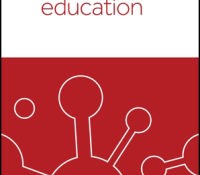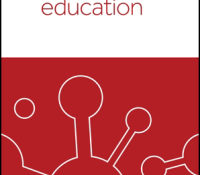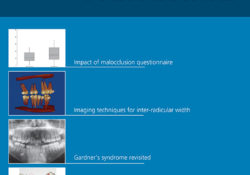eric.ed.gov har udgivet: This manual describes the process used in determining the objectives of a project to develop effective remediation strategies for use by teachers of mathematics. It presents two tools developed for use in assessing remedial mathematics teaching: (1) the “Effective Remedial Mathematics Checklist,” for use in supervising teachers of remedial math, and (2) the “Math Remediation Methods Questionnaire (MRMQ),” designed to assess what teachers, as a group, know about effective remediation in mathematics. Information is presented on the theoretical background, test development, test administration, scoring, and analysis. Appended are (1) the checklist; (2) the questionnaire, Form A (K-6); (3) the questionnaire, Form B (7-12); and (4) an extensive bibliography. (TE) Link til kilde
Like this:
Like Loading...
tandfonline.com har udgivet en rapport under søgningen “Teacher Education Mathematics”: Abstract Formulae display:?Mathematical formulae have been encoded as MathML and are displayed in this HTML version using MathJax in order to improve their display. Uncheck the box to turn MathJax off. This feature requires Javascript. Click on a formula to zoom. Abstract This study is the first to investigate and validate the psychometric properties of an Indonesian translation of the Student Performance Opportunity of Competence Development (SPOCD) questionnaire that covers five key competencies related to the mathematics learning process, namely: (1) thinking; (2) relating to others; (3) using language, symbols and text; (4) managing self, and; (5) participating and contributing. The SPOCD questionnaire comprises 30 items, with a 5-point Likert scale. A total of 1413 Indonesian high-school students (46.4% male,… Continue Reading →
Like this:
Like Loading...
tandfonline.com har udgivet en rapport under søgningen “Teacher Education Mathematics”: Abstract Abstract Curriculum development has always been dealt as one of the most important areas of language learning and teaching by educational institutions. Null curriculum has been viewed as one of the significant kinds of curriculum types which is important due to its absence, being left out or overlooked but should not be disregarded. For this reason, a 48-item questionnaire for null curriculum in ELT with a special focus on twenty-first century skills was developed and validated by the application of the Rasch model. The Rasch model was employed to decide whether the scores of an instrument are purposive, meaningful and significant. Rasch analysis using Winsteps software version 3.73 was used to determine the dimensionality, use of response category, sample… Continue Reading →
Like this:
Like Loading...
tandfonline.com har udgivet en rapport under søgningen “Teacher Education Mathematics”: Abstract This paper introduces the application and the results of a fuzzy number based questionnaire used for evaluating lecturers’ performance in a newly launched peer review programme in order to enhance the reliability of peer evaluations. In our approach, the membership function of the fuzzy number is composed of an increasing and a decreasing sigmoid membership function conjuncted by Dombi’s intersection operator. Compared to the traditional Likert scale-based evaluation, the proposed fuzzy number based methodology allows peer reviewers to express their uncertainty and the variability of the reviewed lecturer’s performance within a single lecture and during a semester in a quantitative way. By utilising the principles of Dombi’s Pliant Arithmetic, fuzzy Likert scale based evaluations given by peer reviewers can… Continue Reading →
Like this:
Like Loading...
tandfonline.com har udgivet en rapport under søgningen “Teacher Education Mathematics”: Abstract Objective: To test the items, identified through qualitative inquiry that might form the basis of a new Malocclusion Impact Questionnaire (MIQ) to measure the oral health-related quality of life (OHQoL) of young people with malocclusion. Methods: Piloting with 13 young people reduced the number of items from 37 to 28. Cross-sectional testing involved a convenience sample aged 10–16 years, attending the Orthodontic Department of the Charles Clifford Dental Hospital, Sheffield. The fit and function of the initial MIQ questions were examined using item response theory. Results: 184 participants (113 females; 71 males) completed a questionnaire (response 85%), seven participants were excluded due to missing responses. The mean age of participants was 12·9 years (SD 1·4) and they had a… Continue Reading →
Like this:
Like Loading...



